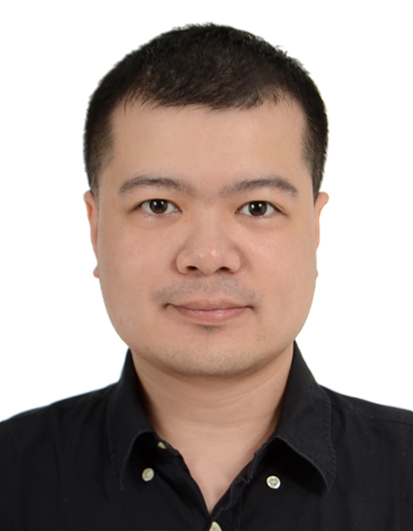张弓 Gong Zhang
委员 Member

张弓博士,暨南大学生命科学与技术学院研究员,博士生导师。博士毕业于德国波茨坦大学,获德国Michelson-Preis最佳博士生奖,翻译组学领域的建立者其成果被选入国家统编教材。目前,张弓博士担任国际人类蛋白质组计划C-HPP共同主席(Co-Chair),为中国人在这一国际大型合作项目中的最高职位。张弓博士亦担任期刊Frontiers in Oncology的副主编、中国分子系统生物学专业委员会委员、深圳市政协常委,国家优秀青年基金获得者,国家863青年科学家,2014年国家万人计划”青年拔尖人才”获得者。发现翻译速率调控是决定蛋白质折叠的关键因素之一,对1972年诺贝尔化学奖理论”安芬森原则”作出颠覆性更新。首次实现高等生物翻译中mRNA全长测序,揭示了翻译调控在生物信息传递中的关键地位,建立了翻译中mRNA与蛋白质丰度之间的定量关系,将中心法则定量化。由此建立翻译组学新学科领域,翻译组分析被作为国际人类蛋白质组计划(HPP)的核心支柱之一,被HUPO列为2014年首要突出贡献;2014年作为中国蛋白质组学学会唯一代表被HUPO邀请在HUPO世界大会上做翻译组学专题报告。首次实现tRNA组全定量测定,发现细菌不依赖任何基因突变即可耐受几乎所有抗生素的翻译组全局调控机制;首次实现翻译起始和翻译速率的同时测定。在应用领域,发明翻译暂停理性重设计法优化蛋白质可溶性表达效率,可在氨基酸序列、表达条件完全不变的前提下,将蛋白质可溶性表达产率提高数千倍,为生化工程提供全新的可能性。为川崎病等未知病因的疾病寻找可靠的分子标志物。张弓教授在Nature系列、Nucleic Acids Research, PLoS Genetics等国际知名期刊上共发表30余篇SCI论文,获得2项国家发明专利。2015年其指导的高中生在Molecular Biosystems杂志上发表研究论文并被作为当期封面文章,是中国高中生在生物类SCI杂志上发表的第一篇研究论文。张弓教授研发FANSe系列超高精度大规模测序序列比对算法,是目前精度最高的算法,有效解决大规模测序的可验证性、可重复性问题。作为创始人之一创立深圳承启生物科技有限公司,基于FANSe系列算法建立了世界上第一个高度实用化的基因测序分析云平台,在多个紧急临床案例中起到了关键作用,为大众提供低成本、高精度的健康及临床测序信息服务,被邀请作TED演讲。参与中国缅甸远征军遗骸DNA鉴定工作,测定了远征军遗骸的全基因组序列,这是世界上首次成功对超过70年热带地区遗骸进行DNA鉴定,被凤凰卫视、湖南卫视、广东电视台、广州日报等媒体广泛专访报道。
Dr. Zhang Gong, Researcher and Doctoral Supervisor at the School of Life Science and Technology, Jinan University. He received his Ph.D. from the University of Potsdam in Germany and was awarded the German Michelson-Preis Best Doctoral Student Award. As a founder in the field of translatomes, his achievements have been selected for inclusion in national unified textbooks. Currently, Dr. Zhang Gong serves as Co-Chair of the International Human Proteome Project C-HPP, the highest position held by a Chinese person in this large international collaborative project. Dr. Zhang Gong also serves as Associate Editor of the journal Frontiers in Oncology, member of the Chinese Molecular Systems Biology Committee, Standing Committee member of the Shenzhen CPPCC, recipient of the National Excellent Young Scientists Fund, National 863 Young Scientist, and recipient of the 2014 National Ten Thousand Talents Program “Outstanding Young Talent.” He discovered that translation rate regulation is one of the key factors determining protein folding, providing a disruptive update to the 1972 Nobel Prize in Chemistry theory “Anfinsen’s principle.” He was the first to achieve full-length mRNA sequencing in higher organism translation, revealing the key position of translational regulation in biological information transmission, establishing a quantitative relationship between mRNA and protein abundance in translation, and quantifying the central dogma. This established the new discipline of translatomes, with translatomic analysis serving as one of the core pillars of the International Human Proteome Project (HPP), listed by HUPO as the primary outstanding contribution in 2014. In 2014, as the sole representative of the Chinese Proteomics Society, he was invited by HUPO to give a special report on translatomes at the HUPO World Congress. He was the first to achieve full quantitative measurement of the tRNA repertoire, discovering the global translatomic regulatory mechanism by which bacteria can tolerate almost all antibiotics without relying on any gene mutations; he was the first to simultaneously measure translation initiation and translation rate. In the application field, he invented the rational redesign method of translation pause to optimize protein soluble expression efficiency, which can increase protein soluble expression yield by thousands of times without changing the amino acid sequence and expression conditions, providing new possibilities for biochemical engineering. He seeks reliable molecular markers for diseases of unknown etiology such as Kawasaki disease. Professor Zhang Gong has published more than 30 SCI papers in internationally renowned journals such as the Nature series, Nucleic Acids Research, and PLoS Genetics, and has obtained 2 national invention patents. In 2015, a high school student under his guidance published a research paper in Molecular Biosystems magazine and was featured as the cover article of that issue, which was the first research paper published by a Chinese high school student in a biological SCI journal. Professor Zhang Gong developed the FANSe series of ultra-high-precision large-scale sequencing sequence alignment algorithms, which are currently the most accurate algorithms, effectively solving the verifiability and repeatability problems of large-scale sequencing. As one of the founders, he established Shenzhen Chengqi Biotechnology Co., Ltd. Based on the FANSe series of algorithms, he established the world’s first highly practical gene sequencing analysis cloud platform, which has played a key role in multiple emergency clinical cases, providing the public with low-cost, high-precision health and clinical sequencing information services, and was invited to give a TED talk. He participated in the DNA identification work of the remains of the Chinese Expeditionary Force in Myanmar, and determined the whole genome sequence of the remains of the expeditionary force. This was the world’s first successful DNA identification of remains from tropical regions over 70 years old, and was widely interviewed and reported by Phoenix TV, Hunan TV, Guangdong TV, Guangzhou Daily and other media.
研究方向:生物化学与分子生物学、翻译组学、生物信息学、微生物学、蛋白质组学
Research Direction: Biochemistry and Molecular Biology, Translatomes, Bioinformatics, Microbiology, Proteomics
1. Lu S, Zhang J, Lian XL, Sun L, Meng K, Chen Y, Sun Z, Yin X, Li Y, Zhao J, Wang T *, Zhang G *, He QY *A Hidden Human Proteome Encoded by “Non-Coding” Genes. Nucleic Acids Research (2019) 47 (15), 8111-8125.
2. Li D *, Liu B, Zheng H, Xiao X, Li Z, Luan E, Li W, Wang Y, Yang Y, Long Q, Song J, Zhang G * XY-Meta: A high-efficiency search engine for large scale metabolome annotation with accurate FDR estimation. Analytical Chemistry (2020) 92:8, 5701-5707.
3. Zhi-Biao Mai, Zhong-Hua Zhou, Qing-Yu He, Gong Zhang*. Highly Robust de Novo Full-Length Protein Sequencing. Analytical Chemistry (2022) 94, 8, 3467–3475.
4. Lu S, Wang T, Zhang G, He QY *. Understanding the proteome encoded by “non-coding RNAs”: New insights into human genome. Science China Life Sciences (2020) 1-10.
5. Zhou Z #, Yang Z #, Ou J #, Zhang H, Zhang Q *, Dong M *, Zhang G *. Temperature Dependence of the SARS-CoV-2 affinity to human ACE2 determines COVID-19 progression and clinical outcome. Computational and Structural Biotechnology Journal (2020) 19:161-167.